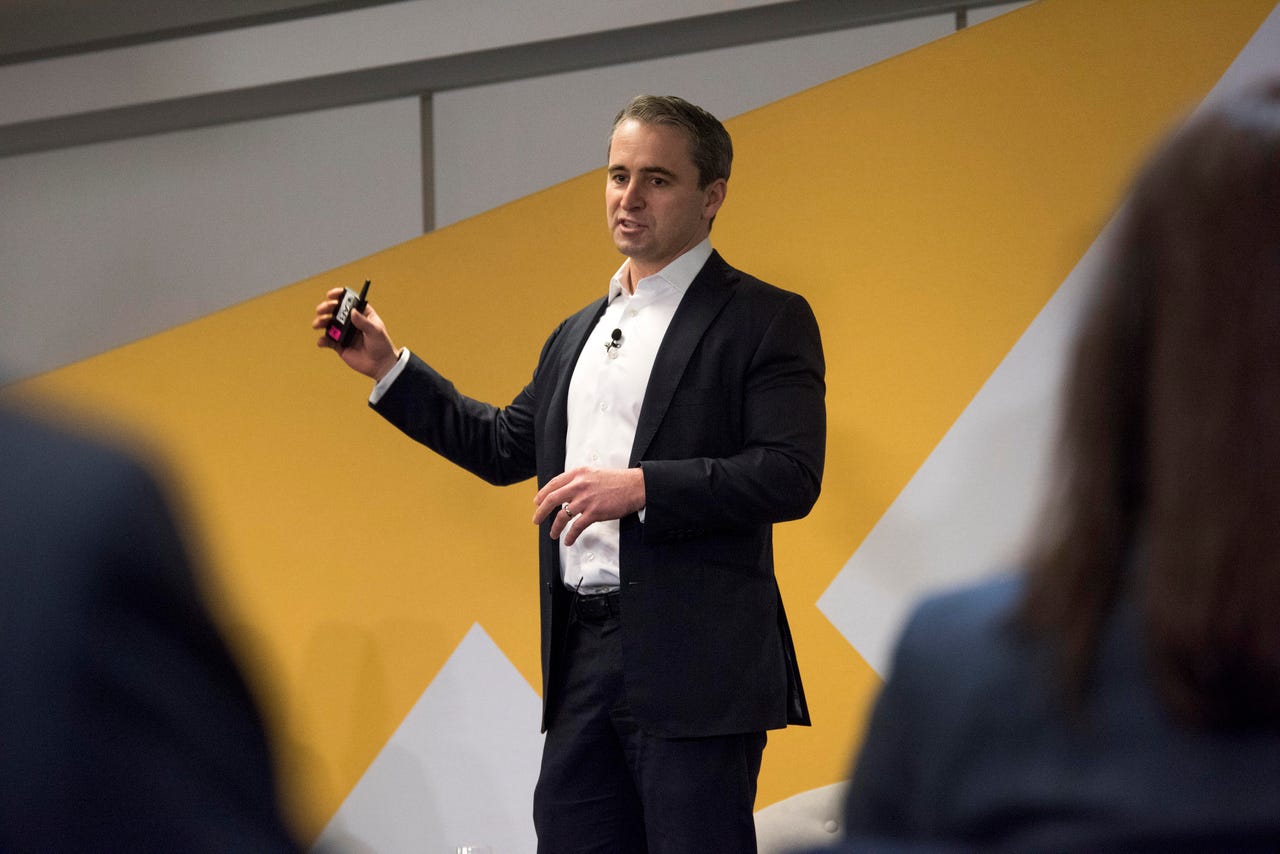Australia's largest bank accuses Apple of leaning on its market power


Commonwealth Bank of Australia CEO Matt Comyn
The Commonwealth Bank of Australia (CBA) has continued its fight for access to Apple's NFC antenna, with CEO Matt Comyn using his appearance before the mobile payment and digital wallet financial services inquiry to highlight Apple's potentially anti-competitive and self-preferencing behaviours.
In his testimony, Comyn said while Apple may hold around 54% of the mobile phone market share in Australia, the Cupertino giant boasts around 80% market share when it comes to digital wallets in use.
"The fact that a single provider could have 80% market share in an individual market is usually cause for concern, and this is a company -- I'd be the first to say they make fantastic products -- but this is a company [whose] market cap is double Australia's gross domestic product, and certainly in the context of tax receipts, makes very little contribution to Australian government receipts," Comyn told the Parliamentary Joint Committee on Corporations and Financial Services.
"I think the rise of both the power, market power, and how that market power is exerted not just in Australia … [the ACCC] has been prepared to take a courageous stance in some areas around digital platforms, but I think it is and should be of growing interest to Australia's Parliament."
The bank introduced Apple Pay in early 2019. CBA signed up for the service after Westpac, the National Australia Bank (NAB), Bendigo and Adelaide Bank, and itself jointly lost their request to the ACCC to collectively bargain against Apple for access to its near-field communication (NFC) interface back in 2016.
On Tuesday, Comyn was asked about the commercial nature of the agreement made between his bank and Apple to offer Apple Pay.
"It's well known that Apple charges a fee … we're not able to disclose that, but I think under a reasonable regulatory information request we can. Google does not charge for such a service," Comyn said.
"One of the features of dealing with Apple is very, very strict documentation and non-disclosure agreements, I am restricted from answering your question," he added again later.
"It is very challenging, at the extreme. I don't think it's a feature that's reflected just in financial institutions. I suspect telcos globally may have had a similar experience around distribution of their phones … they have tremendous market power and they use it.
"To be fair to them, there is a negotiation on commercial terms, but it is, effectively, you sign up to very onerous obligations to even have a conversation and a negotiation."
Labor Senator Deborah O'Neill showed concern that the use of non-disclosure agreements had made "the biggest banks in Australia silenced".
Comyn added that his bank, which during the Banking Royal Commission in 2018 was found to have charged customers who had passed away, currently considers Apple's position as one that gives it "tight control over the whole experience".
"There are definitely examples where we've seen self-preferencing, and you've seen that play out in multiple cases around the app store, particularly payments; you see that in terms of the payment services for app providers; we see it with access to the NFC chip; we've seen it with access to the ultrawide band, which is an improvement on Bluetooth … Apple doesn't provide access to that capability in their phones because they want to be able to deliver their own product, the smart tag product, uniquely," Comyn explained.
"They did the same thing with the previous headset jack -- it's usually dressed up around security concerns but generally you could have confidence to say it has been self-preferencing over a reasonable period of time."
Regulation-wise, Apple currently does not fit within APRA's remit because it is not a deposit-taking institution; nor does it fit within the payments regulations that the Reserve Bank of Australia has in place because it doesn't provide the services that are covered. Comyn argued the tech giant should be captured by regulation in the financial services context so it can make "some contribution to some of the investments and infrastructure in Australia's payments landscape".
He pointed to the recently passed News Media and Digital Platforms Mandatory Bargaining Code, which gave media platforms bargaining room with tech giants that display their content, as something that could be considered in the financial services space.
"There may be lessons that can be drawn from the Media Bargaining Code in this context," he said, taking further questions on notice at the committee chair's request.
"Whether you can apply the same type of code from the News Media Bargaining Code to this context, certainly the potential is there, and it is a similar issue in the sense that the bargaining power and to access the market you're forced to negotiate with someone who's got a very large market share, you don't really have an option but for that, so in that sense there are similarities," ACCC executive general manager of exemptions and digital Tom Leuner said during his testimony when asked about Comyn's proposition.
"Whether and when to regulate a new technology, a new entrant, into a complex market is not something you do without care because the last thing you want to do is entrench the power of existing incumbents," ACCC executive general manager, specialist advice and services, Marcus Bezzi added.
Appearing before the committee in the late afternoon were representatives from Treasury, APRA, and ASIC who took the majority of questions on notice.
Elsewhere on Tuesday, NAB announced it now offers HICAPS practitioners the ability to accept digital health insurance membership cards via the Apple Wallet.
The move allows customers to make a health insurance claim by simply holding their iPhone or Apple Watch near any HICAPS terminal in Australia. Customers can also pay for gap payments using Apple Pay, provided they are health fund members of Medibank, Bupa, Nib, and GU Health.